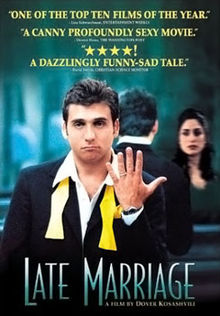
Israel has developed a flourishing film industry, with
movies competing in international film festivals and winning numerous awards.
In Israel, a country of just eight million people, there are ten film schools
and seven international film festivals.
In recent years the Israeli film industry has grown
tremendously, with annually more than 2.5 million people worldwide watching
Israeli films. Such growth is an achievement of the Israeli Film Fund, which
works to engender a sustainable, creative and a vibrant Israeli film industry.
In 2000, the Israeli government passed a New Cinema Law to ensure and secure
more funding for Israeli cinema.
Filmmaking in Israel has undergone major developments since
its inception in the 1950s. The first features produced and directed by
Israelis such as “Hill 24 Does Not Answer,” and “They Were Ten,” tended, like
Israeli literature of the period, to be cast in the heroic mold.
Some recent films
remain deeply rooted in the Israeli experience, dealing with such subjects as
Holocaust survivors and their children (Gila Almagor’s “The Summer of Aviya”
and its sequel, “Under the Domim Tree”) and the travails of new immigrants
(“Sh’hur”, directed by Hannah Azoulai and Shmuel Hasfari, “late Marriage”
directed by Dover Koshashvili).
Others reflect a more predominant trend towards
the present Israeli reality, whether dealing with the Israel-Arab and the
Jews-Arabs confrontations (Eran Riklis’s “The Lemon Tree”, Scandar Copti and
Yaron Shani’s “Ajami”), the military aspects in the Israelis life (Joseph
Cedar’s “Beaufort”, Samuel Maoz’s “Lebanon”, Eytan Fox ‘s “Yossi and Jagger”)
or set in the context of universalist, somewhat alienated and hedonistic
society (Eytan Fox’s “A Siren’s Song” and “The Bubble”, Ayelet Menahemi and
Nirit Yaron’s “Tel Aviv Stories”). The Israeli film industry continues to gain
worldwide recognition through International awards and nominations.